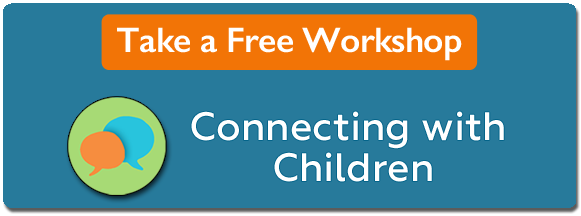
Can you help me, please?
These five words seem to be hard for many people to say.
In airport check-in lines, at fast food restaurants, or in grocery stores, we may react negatively when someone neglects to ask, “May I help you, please?”
But at those times when we feel that no one is trying to help us, we need to ask ourselves, “Did I ask for assistance?”
Teaching our children how to ask for help can help them avoid frustration and dissatisfaction. This is different from asking permission to do something. It is also different from children asking for help and in the process learning helplessness, for example the six-year-old who asks you to tie his shoes instead of trying to do it himself.
Asking for assistance in many ways follow the adage, “Give a man a fish and you feed him for a day. Teach a man to fish and you feed him for a lifetime.”
When our children ask for our help, they are asking us to “help me help myself”. Our assistance whenever possible should be in the form of teaching self-sufficiency.
Human beings have an internal drive to become independent and have a built it reticence about asking for help or permission. How many of us climbed the kitchen cabinets to get to the cookie jar on top of the refrigerator? Yes, we wanted the cookie, but more so, we wanted to get the cookie by ourselves, without asking for permission or assistance. We were driven more by a desire to be independent than by our desire to satisfy our sweet tooth. Our actions communicated that we weren’t asking for a cookie. We were asking for help in trying to feed ourselves. We were asserting our independence.
In this odd way, by learning to ask for assistance, we actually become more independent.
A request for help in reality is requesting, “Help me do it myself”.
As the adult we stand at the next level of independence for the child. As mentors, we help other adults get to the next level of accomplishment in their lives. Asking for help isn’t a sign of weakness, but one of strength and confidence in new or challenging situations. Seeking assistance helps child and adult connect to people who can help us past our limitations.
Let’s teach our children a tenet of successful people: Connect to others through asking for assistance in a way that reinforces independent thought and action.
When our child says, “Draw a circle for me,” we can rephrase the request to “Would you like me to show you how to draw a circle? To get help, all you need to do is ask.”
When we see tears and frustration on our child trying to button her coat, we can ask, “May I show you how to button? If you would like some help all you need to do is ask.”
Show or do. One is help; the other is a hindrance.
Help me do it myself. Learning to ask for assistance is part of the path to independence.

